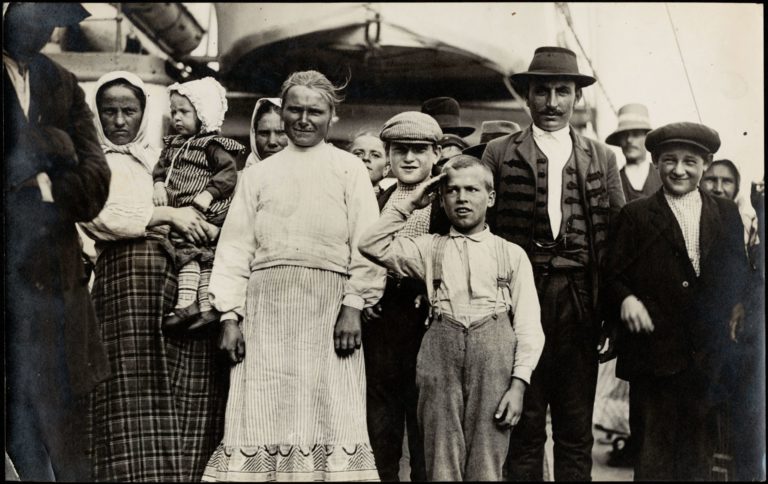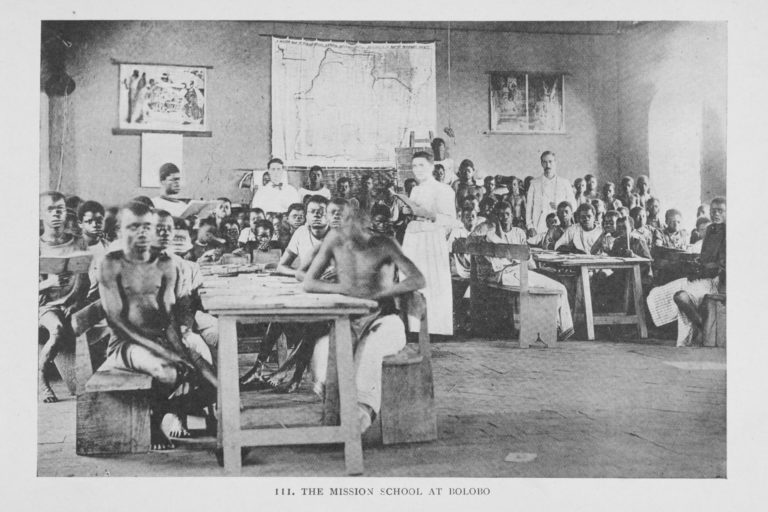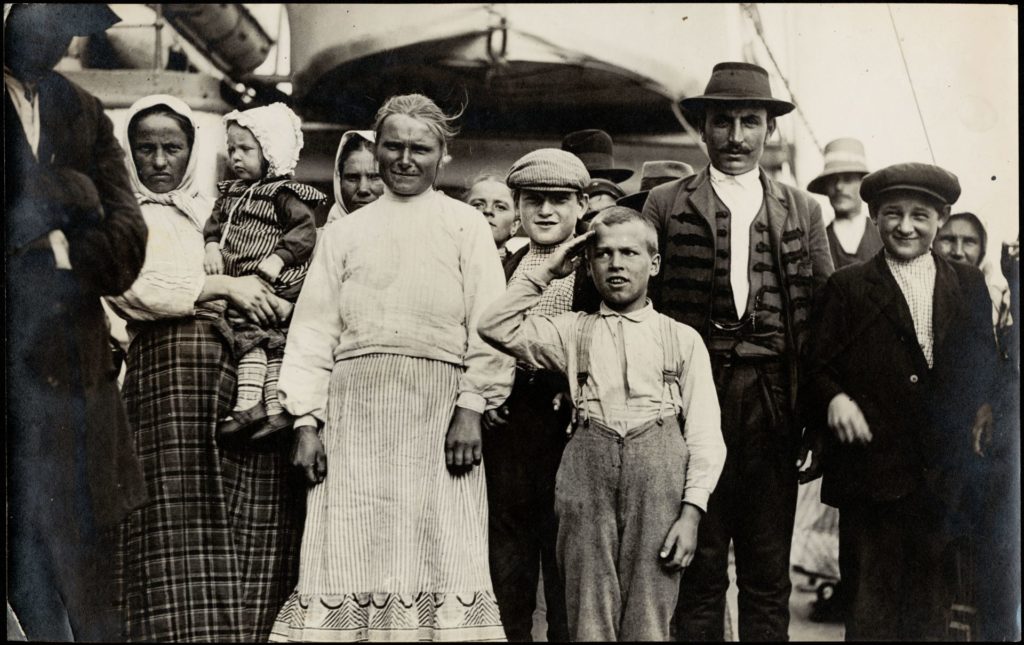Go-Betweens
A Miniseries on Youth, Migration, and Knowledge Transfer
With contributions by Simone Lässig, H. Glenn Penny, Elisabeth Engel, Brian Van Wyck, and Swen Steinberg.
Until recently, the history of knowledge has focused primarily on adults, especially those producing science and other scholarship in academic contexts. Children and adolescents have scarcely figured in this burgeoning historiography. Although there is research dealing with children as the subjects of adult study or as targets of knowledge transmission, work on children and adolescents as knowledge actors in their own right is sparse. Children have received more attention in the history of migration; however, most of that work has so far focused on concepts like assimilation and cultural conflict. As with the history of knowledge, young people in the history of migration have long been studied primarily as passive recipients of hegemonic culture and knowledge transmitted to them by adults. This trend is beginning to change, as historians of childhood and youth take an increased interest in the agency of young people as historical subjects in their own right. Their work has inspired historians of knowledge to also pay closer attention to the agency of children, whose role is particularly evident in migration contexts.
Swen Steinberg and I have explored the nexus of migration, knowledge, and agency—with five of our colleagues in the United States and Germany—in a special issue of Geschichte und Gesellschaft entitled “Knowledge and Migration” (2017). We added young people and their agency to the mix in collaboration with more of our colleagues in a special issue of KNOW called “Knowledge and Young Migrants” (2019). Shortly before the pandemic began, we convened a panel at the 2020 AHA meeting in New York to consider further what we can learn by bringing the categories of knowledge and migration into relation with chronological age. The focus of this panel was young people as go-betweens, that is, as mediators in knowledge transfers, frequently as a consequence of their school attendance and of their acquisition of the dominant language where they migrated. The discussions in this panel and in the KNOW special issue have prompted us to offer a blog miniseries, beginning with this post, as a way to expand the reach of the discussion and invite further reflection on these issues, whether on this blog, on social media, or through more extended print formats.

The common thread through this miniseries—and in the innovative scholarship referenced at the end of this piece—is the view that we can productively apprehend young people in migration processes as historical actors who in varying ways and degrees were able to translate between cultures and produce new knowledge. Because of their grounding in multiple cultures, young people often played an important intermediary role in migration processes. Contemporaries such as the New York photographer Jacob A. Riis not only made children visible but also described their role in books such as Children of the Poor (1892).
The little ones, with their new standards and new ambitions, become in a very real sense missionaries of the slums, whose work of regeneration begins with their parents. They are continually fetched away from school by the mother and father to act as interpreters or go-betweens in all the affairs of daily life.
Compared to the adults in their lives, children and adolescents in all historical epochs and regions of the world have had less power and influence than adults, that is, a significantly smaller degree of independence and much more limited scope for action. Nevertheless, there are countless examples of children and youth who modified migrated knowledge and turned knowledge produced for and conveyed to them into new and often subversive bodies of knowledge.
The pieces in this miniseries offer not only examples but also a new conceptional approach: They apply interest in knowledge and the agency of children in migration contexts to two distinctive yet highly diverse groups that are rarely analyzed in the same context. On the one hand, there are young people who migrated to new places and knowledge cultures. On the other hand, there are children and adolescents who did not migrate but who were confronted with knowledge that had migrated, so to speak, from abroad and become hegemonic within their own changing society, as was the case in colonial and postcolonial settings.

While interested in theoretical considerations, this mini-series emphasizes empirically based scholarship. It draws on primary sources that previous scholars have tended to overlook or undervalue. The blog posts that follow will show how extremely rewarding and important it is to consider the agency of children at the intersection of several dynamic research fields—the history of childhood and youth, the history of migration, and the history of knowledge.
Historians need to take chronological age as seriously as other, mostly intersecting categories of research such as gender, class, and race. Studying young people in transnational, colonial, and migration-related contexts can reveal socially relevant processes of knowledge formation and underappreciated connections among producers and translators of knowledge that involve children and young people in crucial ways. The examples of such scholarship presented in this series form a strong argument for taking young migrants in history and the knowledge they transmitted or produced as seriously as people do today with regard to new generations of young migrants.

Further Reading
Cheng, Kimberly. “The Power of Play: Jewish Refugee Children in World War II Shanghai.” Migrant Knowledge, March 18, 2020, https://migrantknowledge.org/2020/03/18/power-of-play/.
Fass, Paula. Outside In: Minorities and the Transformation of American Education. Oxford: Oxford University Press, 1989.
Goebel, Michael. Anti-Imperial Metropolis: Interwar Paris and the Seeds of Third World Nationalism. New York: Cambridge University Press 2015.
Lässig, Simone, and Swen Steinberg, eds. “Knowledge and Migration.” Special issue, Geschichte und Gesellschaft 43, no. 3 (2017): 313–491, https://www.jstor.org/stable/i26380567.
-----. “Knowledge and Young Migrants.” Special issue, KNOW: A Journal on the Formation of Knowledge 3, no. 2 (Fall 2019): 195–350, https://www.journals.uchicago.edu/toc/know/2019/3/2.
Lehman, Brittany. Teaching Migrant Children in West Germany and Europe, 1949–1992. New York: Palgrave, 2019.
Moruzi, Kristine, Nell Musgrove, and Carla Pascoe Leahy, Children’s Voices from the Past: New Historical and Interdisciplinary Perspectives. New York: Palgrave, 2019.
Rouse Jorae, Wendy. The Children of Chinatown: Growing up Chinese American in San Francisco, 1850–1920. Chapel Hill, NC: University of North Carolina Press, 2009.
Rouse, Wendy L. “Crossing Borders: Chinese Immigrant Children and the Production of Knowledge.” Migrant Knowledge, March 2, 2020, https://migrantknowledge.org/2020/03/02/crossing-borders.
Zloch, Stefanie, Lars Müller, and Simone Lässig, eds. Wissen in Bewegung: Migration und globale Verflechtungen in der Zeitgeschichte seit 1945. Berlin: De Gruyter, 2018.






